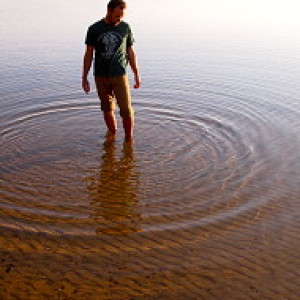Pukaskwa National Park
From the Eastern side of Superior we kept going all the way up to Pukuskawa National Park on the Northerly shoreline. It was a rainy day following the trans-Canada highway and we just listened to the radio (when we could get it) and took in the ruggedness of the landscape. Up here it all boreal forest and some places get tens of feet of snow through the winter. Surprisingly the landscape is stony and rolling, almost mountainous blanketed in conifers and evergreens parting constantly to reveal views of Superior stretching out misty to the horizon. There are also many smaller inland lakes, inlets, and marshes the whole stretch up and many caution signs for moose. We also noticed several through cyclist doing our same loop route in reverse, but much more hardcore :)
Much of the Northern stretch here is wild and sparsely populated it seems. Towns don't pass for much and are often hundreds of kilometers apart. Many of them are a part of, or border First Nations communities. Most of the First Nations groups up here are Ojibwa, Chippewa, or Odawa and all part of the Anishinaabe language group, including the Pic River First Nation near where we stayed on the edge of Pukaskwa National Park. Pukaskwa National Park is named after the river by the same name by these parts. It is giant wilderness bordering Lake Superior for hundreds of kilometers along the Northern shoreline and home to moose, wolves, Canada lynx, and even woodland caribou.
Unfortunately we were limited to the rocky bay harbor of Hattie's cove near the only entrance to the park on the Pic River. Its turns out all of the backcountry trails were closed from washed out bridges from recent floods and storms. We made the most of the cloudy day though and hiked some nearby trails along the beach and through dense boreal forest trying to ID rare sub alpine plants. I picked up a wild plant medicinal guide book before I left for the trip and have been trying to nerd out on plants for eating, tea, doctoring, and other ailments since. There are many, though I also like to just admire the wild flowers like ground dogwood and wild lillies too. Right at dusk I even saw a family of ruffed grouse foraging by our tent. The mothers and chicks were so well camouflaged out in the open I would not have noticed them if they had not moved.
It is July but it is blustery and cold with waves lashing the rocks without mercy here on the Northern tip of this moody shoreline. It could very easily be the coast of Newfoundland and the waves of the North Atlantic.
- 0
- 0
- Olympus E-P1
- f/20.0
- 17mm
- 4000

Comments
Sign in or get an account to comment.


